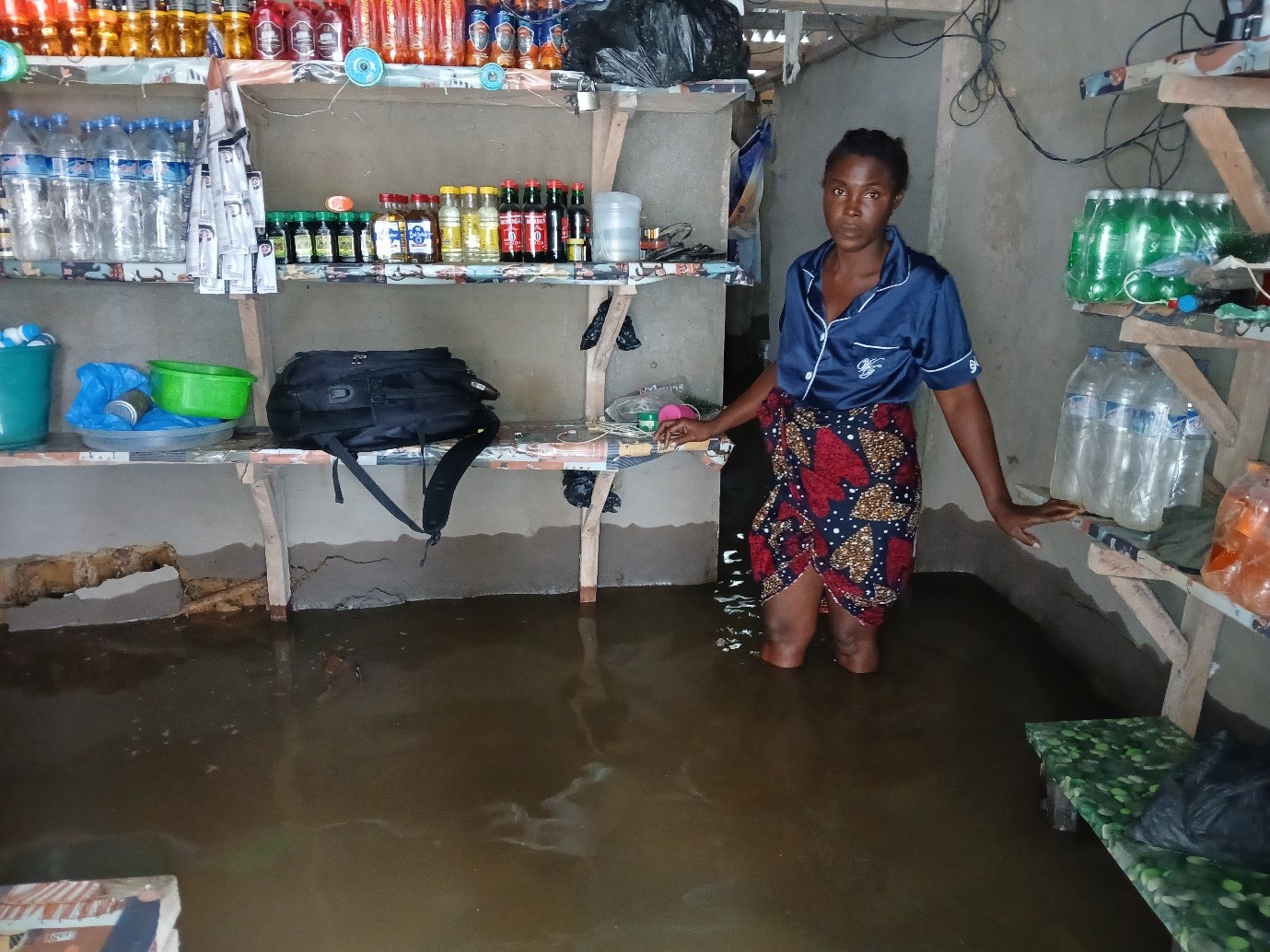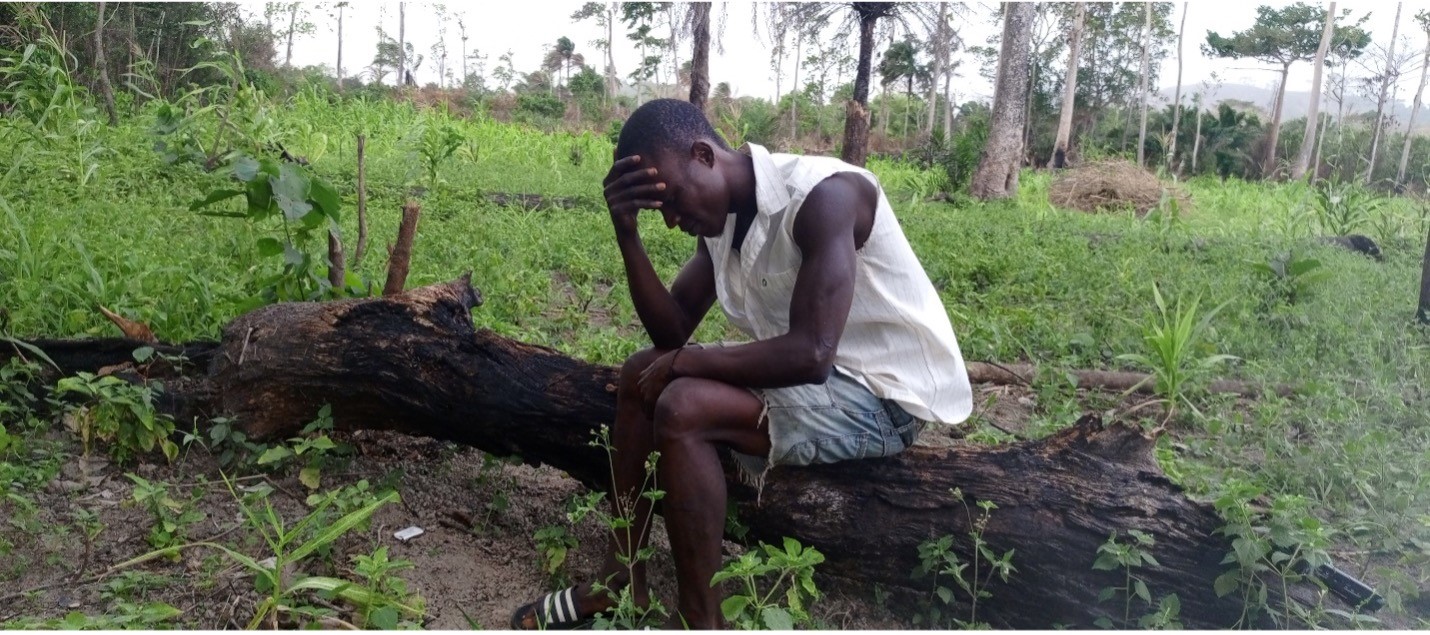ActionAid Liberia coordinator on climate change, Norwu meeting with stakeholders in Monrovia.
Monrovia, Liberia — Stakeholders in Liberia’s agriculture sector are coming together this week for a three-day summit designed to kick start a new approach to the growing threat of climate change.
By Evelyn Kpadeh Seagbeh With New Narratives
The summit “Climate Financing for Agroecology and Renewable Energy,” is seeking to increase funding and interest in so-called “agroecology” and renewable energy. Agroecology emphasizes the use of natural processes and resources to create sustainable and resilient agricultural systems. It is a response to modern intensive agricultural systems that focus on maximizing production, sometimes at the expense of ecological and environmental health.
The summit will gather an array of participants, including state actors, environmentalists, climate justice activists, civil society organizations, and representatives from youth movements and women’s groups in the natural resources and agriculture sectors, as well as the donors and diplomatic communities according to Madam Norwu.
 A women’s house is flooded in River Cess. Photo: Eric Opa Doue/New Narratives
A women’s house is flooded in River Cess. Photo: Eric Opa Doue/New Narratives
The summit comes as climate change’s impact on Liberia has become more obvious than ever. Since the start of Liberia’s rainy season, about 48,000 people have been affected by flooding. The World Bank Group projected that about one hundred thousand people would be affected by flooding this year due to heavy downpours of rain, caused by climate change. For the most part, women and children are particularly vulnerable to the impacts of climate change.
Hon. Ansu Dorley, director of the National Disaster Management Agency, told a recent radio program that more funding and support is needed to better prepare the agency for worse climate change disasters ahead. But much of the funding for Liberia’s climate change efforts comes from international donors in countries that are also grappling with climate disasters.
Action Aid’s Madam Harris said Liberian must nationalize its climate approach to minimize the effects of climate change by shifting from the old methods of agriculture that destroy the environment and trigger climate change consequences.
 A Nimba farmer prays for rain. Photo: Jerome Saye/New Narratives
A Nimba farmer prays for rain. Photo: Jerome Saye/New Narratives
Proponents of agroecology-aligned practices say there is strong evidence to support its benefits in climate change adaptation, mitigation and resilience. They point to evidence that it can improve grain yields with fewer inputs, increase biodiversity, improve soil health and water security, and enhance carbon sequestration.
Agroecology practices also reduce the need for pesticides and fossil-fuel-intensive synthetic fertilizers, reducing environmental risks as well as economic and health burdens for farmers.
Actors at the summit will also hold dialogues and review Liberia’s progress of its implementation of the Nationally Determined Contribution – the climate change commitments made by countries to reduce their greenhouse gas emissions and prepare for the effects of climate change. The summit aims to encourage government and other key players to better coordinate climate change adaption efforts and include actors from the grassroots to the national and international levels. In 2021 Liberia submitted its updated and revised NDC committing to reducing its economy-wide emissions by 64% below the projected business-as-usual level by 2030.
Organizers of the summit hope to create a national call to action that will galvanize state and non-state actors to scale up agroecology initiatives across the country by giving farmers access to the resources and knowledge necessary to adopt sustainable practices. The summit will also focus on the need for the inclusion of women, youth, and local communities in the implementation of the current Renewable Energy Policy.
“It’s essential that the voices of those most affected by climate change are heard in policy-making processes,” Madam Norwu said. “We want to promote inclusive energy-saving technologies that benefit everyone, especially marginalized groups.”
Summit sessions will be dedicated to educating women and youth about the Comprehensive Africa Agriculture Development Program, a pan-African initiative that aims to help African countries eliminate hunger and reduce poverty by raising economic growth through agriculture-led development.
Through the program, African governments agreed to allocate at least 10% of national budgets to agriculture and rural development, and to achieve agricultural growth rates of at least 6% per annum.
“Women and youth are key players in our agricultural landscape,” according to a 2023 World Bank blog that argued engaging women in decision-making processes is not just a matter of equity, but it’s essential for the sustainability of agriculture and food security since women make up 76 percent of the agriculture labor force.
The summit aims to set the stage for significant policy advancements, by fostering a united front among various stakeholders. By working together it hopes to clearly understand the progress Liberia has made in its implementation of the Nationally Determined Contribution to give actors a broader sense of the successes, challenges, gaps, for Liberia to achieve faster progress.
The story was a collaboration with New Narratives with support from the American Jewish World Service. The funder had no say in the content.


